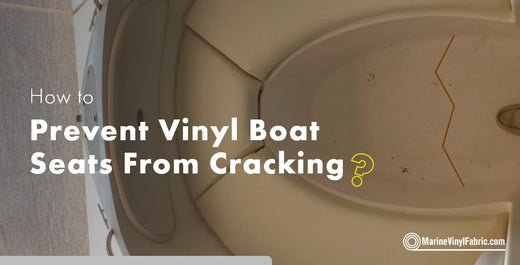
How To Prevent Vinyl Boat Seats From Cracking
Marine vinyl fabric holds up really well, but it’s important that you take good care of it. Fading and cracking can occur if you don’t take the right precaution steps to avoid it.
I’m going to go over the big things you need to look for and handle to prevent your boat seats from cracking. we'll discuss effective cleaning and stain removal techniques, learn how to choose and apply suitable protectants, and discover tips for preventing mold and mildew.
Before we dive into actually protecting your marine vinyl fabric, you need to know what causes boat seats to crack to begin with.
What Causes Boat Seats to Crack?
There are three main reasons that boat seats crack:
- Too much sun exposure
- Dirt
- Mold/Mildew
Some of the best things you can do for your boat seats are to make sure that you keep them clean, dry, and out of the sun when you’re not using your boat.
Now that you know what causes boat seats to crack, we’re going to get into what you can actually do about it to protect them.
Keep Them Clean
It’s a simple step, but it goes a long way. Keeping your boat seats clean can have a big impact on preventing them from cracking.
Make sure that you clean up spills and stains as quickly as you can. The longer spilled substances and stains stay on your boat seats, the more damage it can cause.
The best way you can clean your seats is to use dish soap and water. You don’t want to use any harmful household cleaners, because that can cause more damage than good.
It’s a good idea to do a quick wipedown after you’re done using your boat each time. Even if it doesn’t look like your seats are dirty, there could be some substances left on the seat that you can’t see very well. For example, sunscreen, oils, and sweat are hard to see. However, they can harm your seats if they aren’t cleaned up.
Protect The Seats
On top of cleaning your boat seats, keeping your seats protected is a big step. You can do this by using a marine vinyl protectant. You can just apply it to your seats after wiping it down.
Using protectants helps keep the seats clean, and helps prevent fading and cracking over time. You don’t need to apply a marine vinyl protectant after each use, but you should every few weeks or so.
Cover It Up
An important step in preventing your boat seats from cracking is covering them up. This does a few important things. It keeps your vinyl out of the direct sunlight, and helps keep the seats dry. The sun will dry out the plasticizers over time which causes the cracking.
This results in preventing fading and mold/mildew from forming on the seats. These are some of the biggest reasons boat seats crack in the first place.
When covering your boat, make sure you have some ventilation. You need to make sure that you don’t trap any moisture in it. This is how mold/mildew will form on your seats and cause some bigger issues. Make sure you have the right ventilation for your cover, so that you can keep your seats dry.
Covering your seats keeps your vinyl out of the direct sunlight, which will help prevent your seats from fading. This might not seem like the biggest deal, but the seats fading can easily turn into cracking over time.
Remove Spills and Stains
I mentioned this before, but I want to hit on it again, because it’s important and can make a big difference. You need to make sure that you clean up your spills and stains as quickly as you can.
Make sure you don’t use household cleaners to clean up the spills. These can be very harmful to the vinyl, so they should be avoided at all costs. If warm water by itself isn’t doing the trick, using some dish soap with the warm water, and a little bit of elbow grease should do the trick.
What Products to Use to Protect Seats
There are a lot of boat seat protectants out there, so you want to make sure you choose a good option that will protect your seats without harming them.
Here are the two main protectants we would recommend using for your boat seats:
- Starbrite marine vinyl treatment
- 303 Aerospace protectant
There are other good options out there, but these ones generally work really well to protect boat seats from fading, dirt and mildew.
How to Prevent Mold from Forming on Boat Seats
This is another one I’ve touched on in another section, but it’s one of the hardest things to avoid. You need to first make sure you are using Marine Vinyl that has passed ASTM G21. Some vinyl’s are not manufactured with to pass this mold and mildew test. It is added during the manufacturing process. Assuming your vinyl has passed this important test its important to note that the vinyl itself doesn’t mold but foreign objects on it will mold. This includes spilled food, drinks and even things like sunscreen. Mold grows on boat seats because of moisture being trapped. That’s why it’s so important to make sure you’re keeping your seats dry.
After you’re done using your boat each time, you should wipe down your boats, not only to keep them clean, but to make sure they’re dry as well. If the moisture in the seat is trapped for some time, then eventually that place will become the birthplace of mold and mildew
Another big piece is making sure that you’re properly covering your boat. Choosing a cover that has good ventilation is key in making sure you don’t trap moisture on your boat, and prevent mold from forming.
Quick Recap
Marine vinyl generally holds up really well, but that doesn’t mean you shouldn’t take your own measures to protect it and prevent it from cracking. If you don’t properly take care of your vinyl, it will break down much quicker than if you’re taking the right steps to make sure it remains in good shape.
Here are the biggest steps you need to take to protect your vinyl boat seats from cracking:
- Keep it clean. Make sure that you’re wiping down your seats after each use. Even if you can’t see spills or dirt on the seats, there may be some substances like sunscreen, oil, and sweat on the seats that you can’t see very well.
- Use protectants. After cleaning your boat seats, use protectants to keep them in good shape for as long as possible. These help protect the seats from fading and cracking. Two great protectants you can use are Starbrite marine vinyl treatment and 303 Aerospace protectant.
- Remove spills as fast as you can. The longer you leave spills, the worse the damage is going to be. Use dish soap and warm water to clean up any spills and stains that might occur on your seats.
- Cover it up. It’s so important to make sure your boat seats aren’t exposed to direct sunlight for too long. You don’t have to worry about it when you’re out on the water. Just make sure you cover your boat when you’re not using it.
- Keep it dry. This is crucial to be sure that no mold will form on your boat seats. Make sure that you’re wiping down your seats to keep them dry, and that the cover you use on your boat has proper ventilation. This will prevent moisture from getting trapped.
If you follow these tips, you’ll prolong the life of your boat seats and do a great job of protecting them and preventing cracking.
Do you have any questions about the specific products mentioned, or need help choosing the right marine vinyl for your boat? Our team of experts at MarineVinylFabric,com is always happy to assist you! Reach out to us by phone at (800) 471-2092 or mail us at Support@MarineVinylFabric.com , and we'll be happy to chat about all things boat seats and vinyl care.


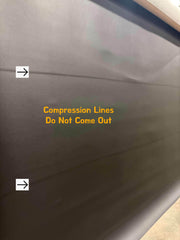
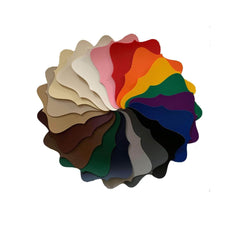
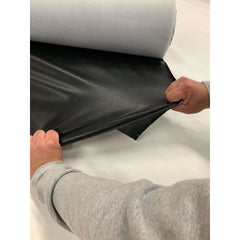
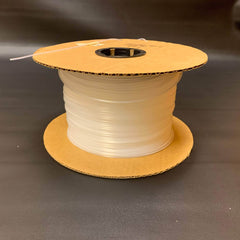


Leave a comment
This site is protected by hCaptcha and the hCaptcha Privacy Policy and Terms of Service apply.